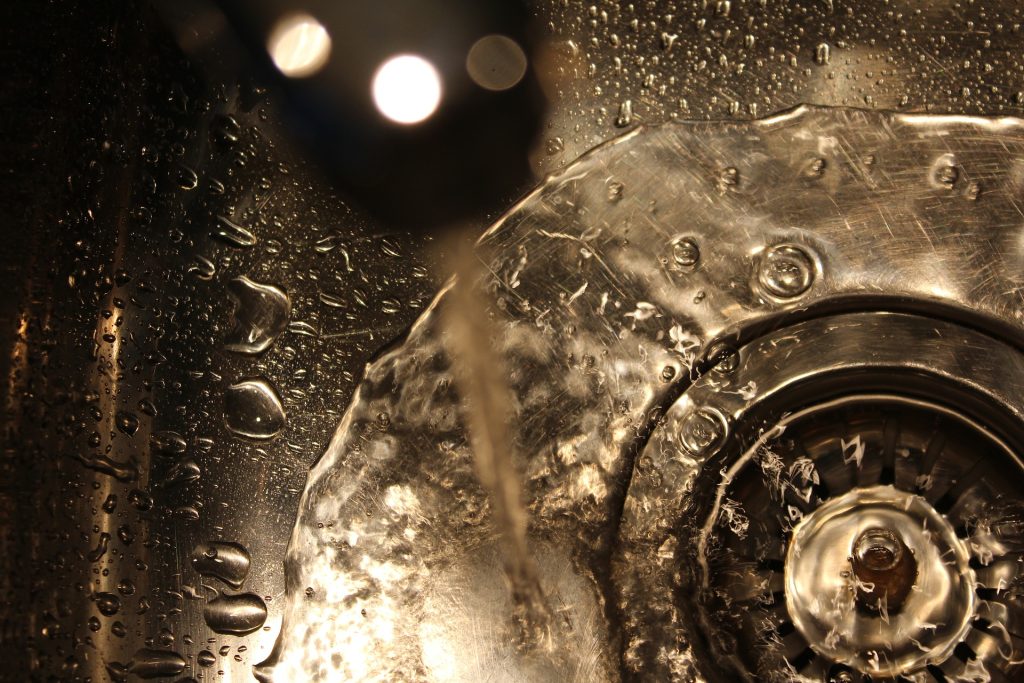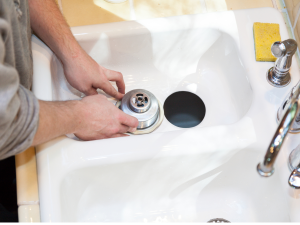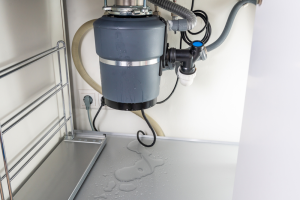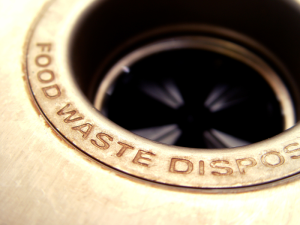Anyone who has had a garbage disposal unit break down understands how inconvenient it is when this small device fails. This tends to happen when homeowners are unaware of how to properly use it.
It’s not difficult to troubleshoot your trash disposal, but preventing clogs is always preferable to fixing a garbage disposal. Knowing just a few garbage disposal maintenance tips is a great way to make sure your system is functioning just like it should.
Avoiding clog-causing usage and properly cleaning your disposal are the greatest ways to prevent self-inflicted disposal repairs.
Let’s look at some techniques for how to maintain garbage disposal and keep it clean and fresh-smelling without using harsh chemicals.
Don’t Let Your Guests Use It
Certain garbage disposals can be more sensitive than others, and your visitors will likely have no idea what your waste disposal device is capable of. It’s preferable to be safe and declare the waste disposal off-limits.
While some materials and objects, such as metal and plastic, are obviously hazardous for your disposal unit, there are plenty of other less obvious materials and objects that can cause plumbing system malfunctions, clogs, and other damage.
No Eggshells, Please
Some plumbers advise against dumping eggshells and coffee grounds down the garbage disposal, while others maintain that eggshells and coffee grounds sharpen and clean the device, while coffee grounds assist reduce odors.
While this is true, eggshell membranes and coffee grounds can clog drains and pipes, especially if you have a septic tank. It’s advisable to tread carefully and avoid disposing of eggshells and coffee grounds in the garbage disposal, but a small quantity every now and then should be alright.
One of the best garbage disposal maintenance tips to follow is an easy one. Check your garbage disposal’s user handbook for detailed guidelines on what you may and cannot throw down it.
Avoid These Items
Here are some items to avoid putting down the garbage disposal:
- Glass, metal, plastic, or paper are all options (including cigarette butts, fruit stickers, string ties, etc.).
- Grease, oil, or fat can cause the garbage disposal to clog and should be disposed of elsewhere.
- Vegetables that are stringy, fibrous, or starchy (celery, maize husks, artichokes, onion skins, potato skins, etc…) Small amounts are probably fine, but these tough veggies should be avoided).
- Rice or pasta (foods that expand when water is added).
- Bones, pits, and seeds should be avoided; however, small fish and poultry bones are acceptable.
- Anything in huge quantities (large amounts of anything will cause a garbage disposal clog).
Use Cold Water
During and after each use, keep a continuous stream of cold water running. To guarantee that the food washes through, keep the flow flowing for around 15 seconds after the grinding has stopped. Fat can hide and stick to the blades and interior of the blades when using hot water. In addition, cold water prevents the machine from overheating.
Put a small bit of ice in the garbage disposal and run it once in a while to maintain it clean. Before running it, place the rubber stopper over the opening to prevent ice from shooting out.
Avoid Hot Water
It’s fine to run hot water through your sink after you’ve finished with the garbage disposal, but only use cold water while grinding. Hot water, as previously indicated, can cause lipids to congeal and adhere to the blades and interior of the device.
How To Keep Your Garbage Disposal Clean
To keep odors at bay, treat your disposal once a month with a half cup of vinegar and some baking soda. With the unit turned off, let that sit in the disposal hopper for a while. Then, rinse it down with hot running water.
Despite your best efforts, your garbage disposal may become clogged or stop working altogether. You might be scratching your head if your garbage disposal is clogged, buzzing, or won’t turn on.
But don’t be alarmed. There are numerous additional helpful garbage disposal maintenance guidelines you may follow if you want to avoid clogs.
To begin, use a lot of water. The best approach to avoid a blockage is to run plenty of cold water down the disposal while it’s grinding up food waste and again for 30 seconds afterward.
Then, on a regular basis, maintain your disposal by grinding up lemon or orange peel and ice cubes. Dishwashing detergents that degrease your dishes should also be used. Grease is the ‘glue’ that holds bacteria that cause odors in your drain pipes and increases the probability of sluggish draining.
Conclusion: Garbage Disposal Maintenance
Now you hopefully have a few tips for garbage disposal maintenance that will help keep your system running perfectly all year long.
However, even if you follow all of those tricks we have taught for garbage disposal care, sometimes things happen and your disposal isn’t working as it should.
If your issues won’t go away and your garbage disposal system isn’t cutting it, contact us at Clover Contracting to get everything back on track. We have provided quality service since 1981 when it comes to all things air conditioning, heating, and plumbing.




